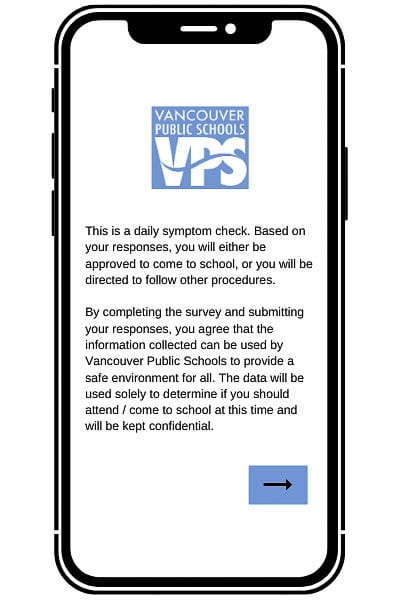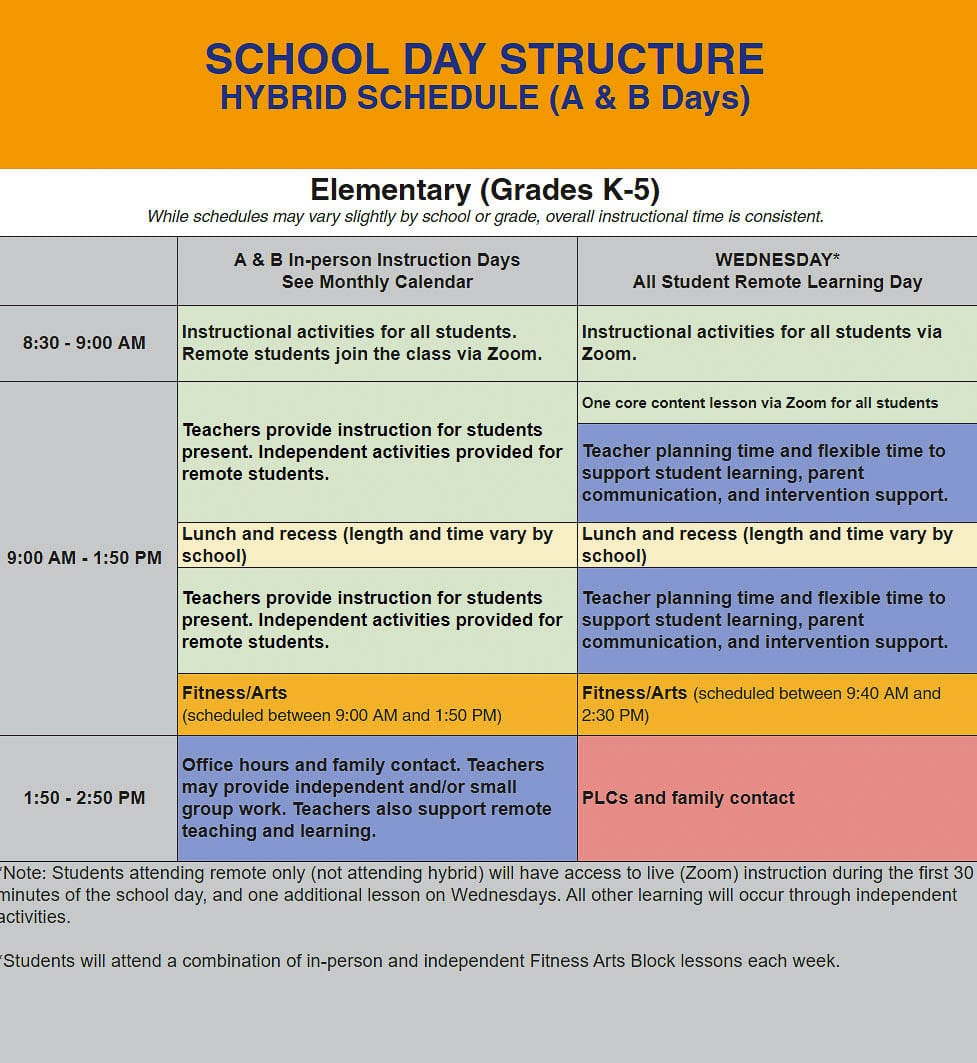The district is planning to have no more than 10 students in 158 “pods” across 21 primary schools
VANCOUVER — Despite concerns, and some objections, Vancouver Public Schools is set to welcome back kindergarten students to 21 primary schools on Monday, Nov. 16.
Kindergarteners have already returned to classrooms in the Evergreen school district, along with Battle Ground, Camas, and Washougal. Ridgefield plans to bring children back to classrooms towards the end of November.

Similar to those districts, kindergarten students in Vancouver Public Schools will return to a classroom four days a week, for three hours. Wednesday will be reserved for online-only education and administrative work for teachers.
The district has planned for 79 classrooms, divided into two “pods” of 7-10 students, starting at 8:30 a.m. for most schools, 9:10 a.m. for Lincoln and Minnehaha Primary schools.
Students will be able to remain with their current teacher, unless that teacher has chosen to remain online only, or is on paid medical leave, in which case a substitute will be brought in.
Parents who’ve chosen to send their student back to class will be asked to fill out a health questionnaire about their child each Monday, through a link emailed out by the district.

As students arrive at their school, they will need to walk past newly installed thermal scanners. Anything showing a temperature over 100.4 degrees fahrenheit will be moved to an isolation room where they will have their temperature re-checked. If they still are over 100.4 degrees, a parent or legal guardian will be called and asked to come pick them up.
Students are expected to receive an hour of English and language arts instruction, along with an hour of math, allowing for flexibility to catch up on other assignments, and receive social-emotional support.
“What we know is that it won’t be perfect when they first start with this type of schedule,” said Marshall Primary School Principal Bobbie Geenty during a Vancouver School Board meeting this week. “But we just want all of our staff to know how much we’re behind them and how much support we have there for our learners, for our teachers and for our families as we transition into this next phase.”
The district said Thursday it would be bringing back 59 furloughed bus drivers, 42 of whom will be driving routes for kindergarten students. 115 paraeducators are also being brought back, and most of the secretaries and clerks at the 21 primary schools have had their hours restored.
At the end of each day, students will be sent home with lunch, as well as breakfast for the next morning.
One of the concerns raised during Tuesday’s school board meeting centered around equity, since students attending classes will receive more than two hours of live instruction, while remote learning students would likely get only around 30 minutes of live interaction with their teachers.

Shelley Moody, who teaches in the district, said she has to keep her son home due to health concerns that put him at higher risk.
“The plan … provides my child 180 minutes for the whole week,” she told the board. “Kids who go back into the building, they get 420 (minutes). It’s a big difference. He will get 43 percent of the instruction that his peers will get.”
Board Director Kathy Decker also sounded off on that issue, noting that many of the students who would choose to remain in remote represent some of the district’s most vulnerable populations.
“The inequity of that offering is just painful to me,” said Decker. “We can’t do that to these kids. It just doesn’t seem right. It isn’t right.”
Decker, who is the parent of a kindergarten student, clarified that she’s in support of getting the children back into a classroom as safely as possible.
“It’s just, the resounding feedback I’ve gotten is that, ‘because grandma lives in our home,’ or, ‘because mom is recovering from cancer,’ or, ‘because my son has severe asthma, we just can’t make this choice,’” said Decker. “I just encourage the district to continue evolving this.”
One proposed solution was to assign teachers specifically for online-only students, to allow for a more personal approach for them.
Stromme said that possibility was put forward as the plan was being put together, but it was determined that it would be too disruptive for many students because it would require them to switch teachers, and could create workload disparities for some educators.
“It’s just not a practical solution relative to how students are assigned to teachers,” he told the board. “And the flexibility that we’ve provided families to move in and out of that.”
Stromme said the district will be open to feedback as the move to hybrid instruction for kindergarten students moves along, and look to make adjustments to address inequities and shortfalls as much as possible.
In the event there’s an outbreak that impacts a classroom, the district said it will work closely with Clark County Public Health to determine the best response.
If there are two or more cases within a classroom over a two week period, the district would likely keep all of those students home for 14 days.
“We would listen carefully, very carefully, to Clark County Public Health in terms of their guidance,” said Deputy Superintendent Mike Stromme at Tuesday’s meeting. “What might be true and take place in one classroom may be different than another classroom in another school, given the circumstances.”
There have been 63 COVID-19 cases linked to Clark County schools, including private schools, though the most recent cases had apparently not been exposed inside of a school building.
Vancouver Public Schools is bringing kindergarten students back into classrooms on Monday, Nov. 16



